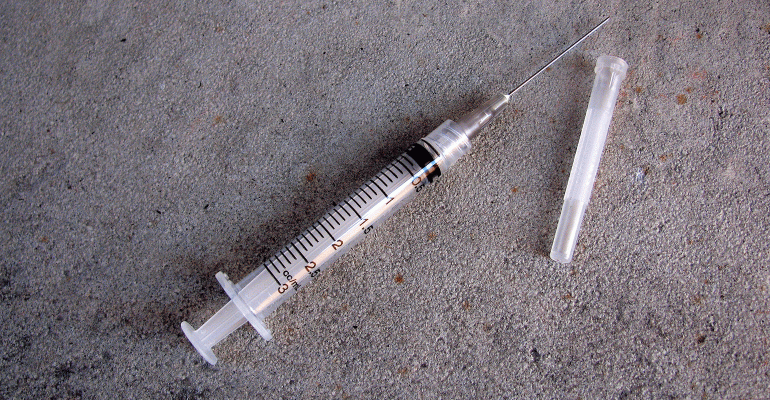Starbucks is actively considering installing safe-needle-disposal boxes in bathrooms at select locations in response to an online petition created by Seattle employees.
The petition — which has so far been signed by more than 3,700 people — was drafted after three baristas at a Starbucks in Seattle complained in October 2018 of being poked by discarded hypodermic needles thrown away by drug users.
“I’m pretty sure it looks worse to have your baristas continuously exposed to HIV and Hep C and Hep B than to have locked boxes for needle disposal in areas open to the public,” an unnamed barista told KIRO 7 News in October.
She also said the situation has escalated since Starbucks opened its bathrooms to everyone — including nonpaying customers — in May 2018 as part of its “Third Place” policy.
At the time the dangerous needle incidents were reported, a Starbucks spokesperson confirmed that at least two baristas had been poked by needles while working, but said their employees have been trained since early 2017 on what to do when hypodermic needles are found.
“Employees risk getting poked, and do get poked, even when following ‘protocol’ of using gloves and tongs to dispose of used needles left in bathrooms, tampon disposal boxes, and diaper changing stations,” the online petition read. “It costs almost $2,000 just for one round of after-exposure shots, not including other tests, shots, medications, etc. Employees have to pay out-of-pocket for this before being reimbursed until Starbucks’s company insurance kicks in.”
Starbucks will make the decision whether to install sharps disposal boxes or explore other solutions on a store-by-store basis based on factors like design, layout, traffic, and the needs of the community.
“These societal issues affect us all and can sometimes place our partners (employees) in scary situations, which is why we have protocols and resources in place to ensure our partners are out of harm’s way,” a Starbucks representative said. “I can’t emphasize enough that if our partners are ever in a position where they don’t feel comfortable completing a task, they are empowered to remove themselves from the situation and alert their manager. As we always do, we are constantly evaluating our processes and listening to partner feedback of ways we can be better.”
As of the end of fiscal 2018, Seattle-based Starbucks had 29,324 stores worldwide.
Contact Joanna Fantozzi at [email protected]
Follow her on Twitter: @JoannaFantozzi





